Night Watch Against Malaria:
Heroes of Chilowa Village
Micheal Banda, a human landing collector, exposes his skin to mosquitoes to trap them as they attempt to bite. Michael uses a mouth aspirator to collect these live mosquitoes and places them in cups to be sent to the National Malaria Elimination Centre Laboratory. The information collected from these mosquitos contributes to a broader understanding of how best to combat malaria in Zambia./ Chipema Chinyama for USAID
In the heart of Chilowa village, located in the Katete District of Eastern Province, Zambians are waging a quiet but determined battle against malaria. Every day, community members are rising to the challenge, using the knowledge, tools, and technology from the U.S. President’s Malaria Initiative (PMI) to build more resilient communities and help eliminate this deadly disease. These health heroes, trained and supported by PMI, are making a significant impact in their community.
Eless Banda and Sara Banda are Community Mosquito Collectors. Their mission? To collect mosquitoes from households in their community. The mosquitoes collected provide important information to the PMI Evolve Project and the Zambia National Malaria Elimination Programme about the effectiveness of malaria interventions such as indoor spraying and insecticide treated bed-nets.
Eless and Sara use a specialized technique to collect these mosquitos. First they spread white linen on the ground and spray anti-insect spray, causing the mosquitoes to fall from the household’s wall onto the fabric. Next, they carefully pick up the mosquitos and store them in petri dishes before sending them to the PMI-supported molecular laboratory based at the National Malaria Elimination Centre in Lusaka.
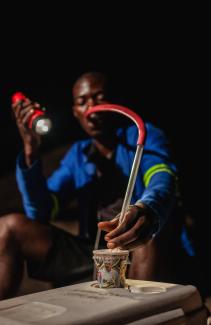
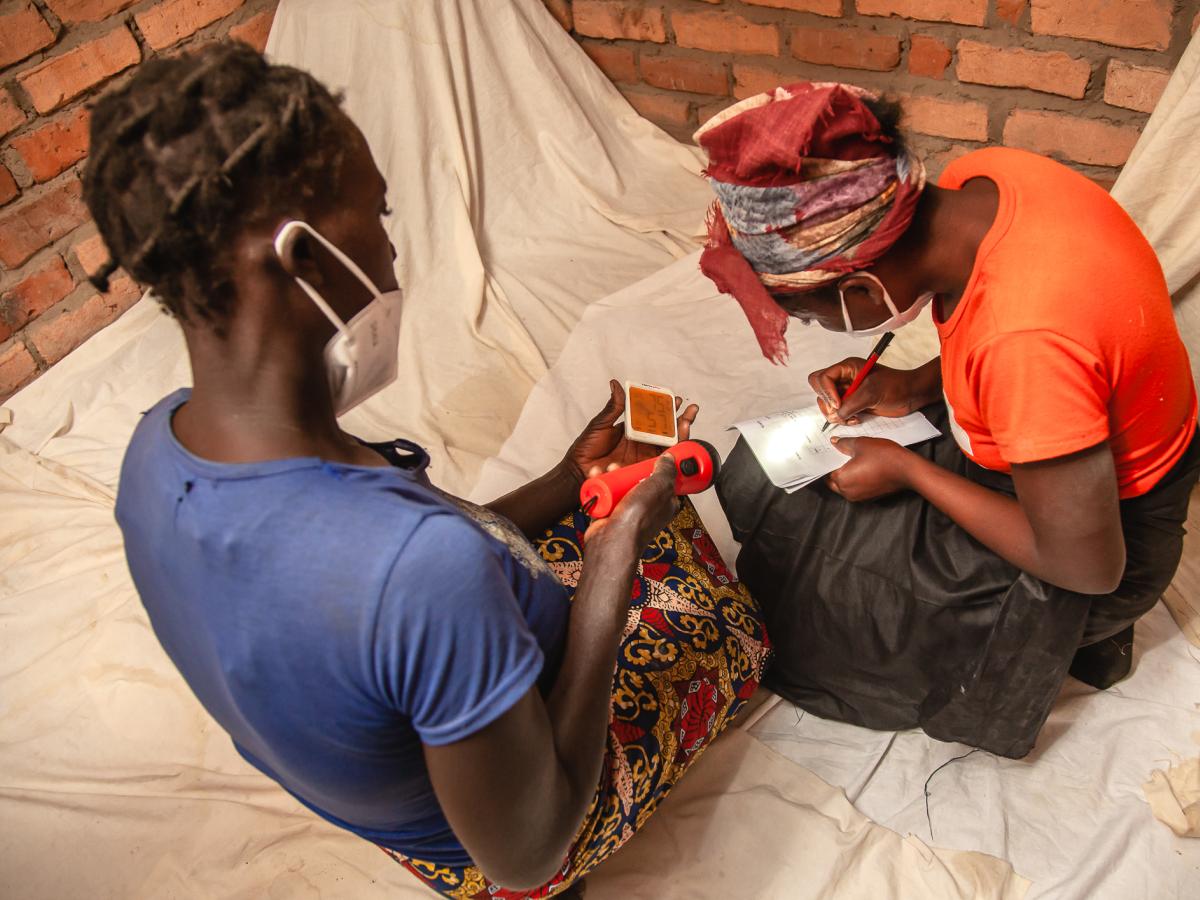
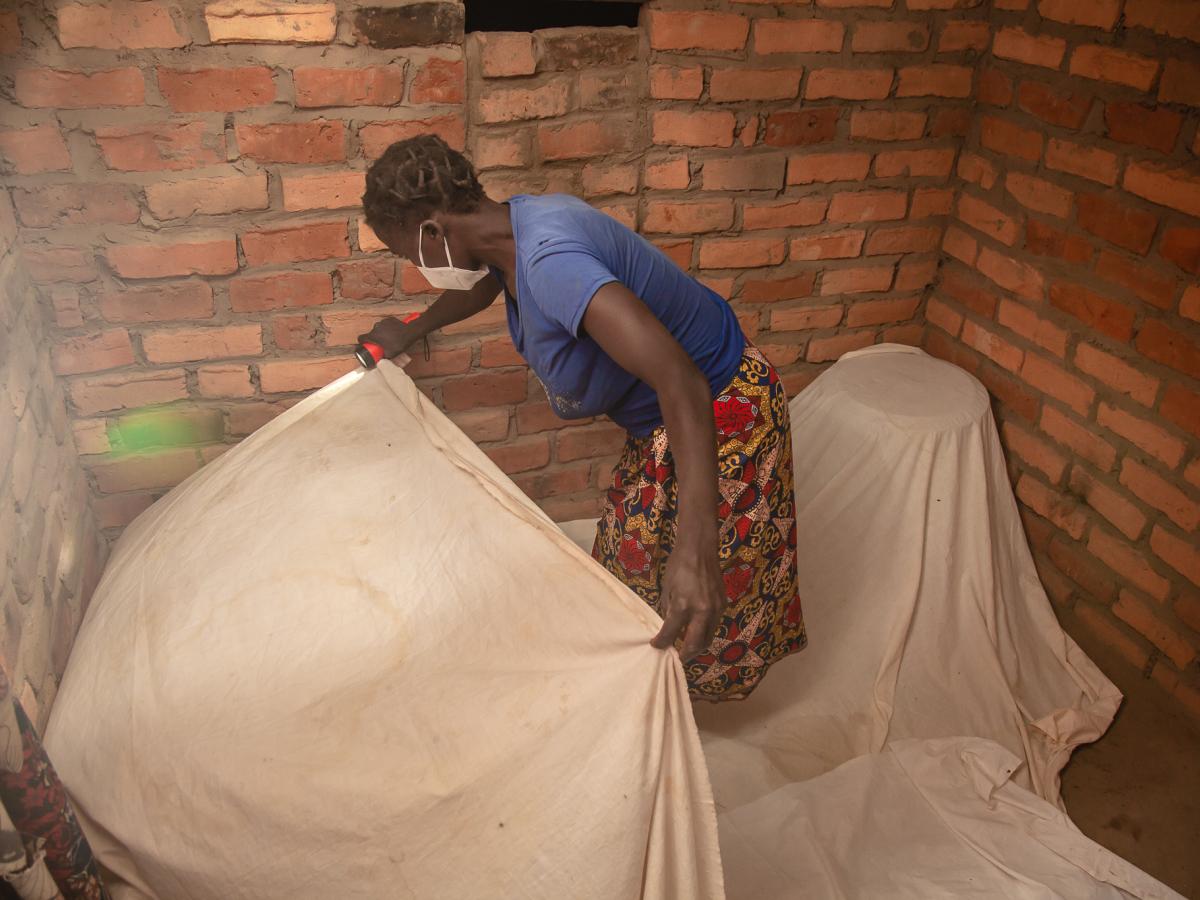
(L) Eless and Sara take down information including wall surface type, roof type, number of insecticide treated bed-nets, bed spaces, temperature and humidity. (R) Eless spreads white linen on the ground before using anti-insect spray to collect fallen mosquitos. The U.S. President’s Malaria Initiative and the Zambia National Malaria Elimination Centre use the information collected by Eless and Sara to understand the effectiveness of malaria prevention interventions./
Chipema Chinyama for USAID
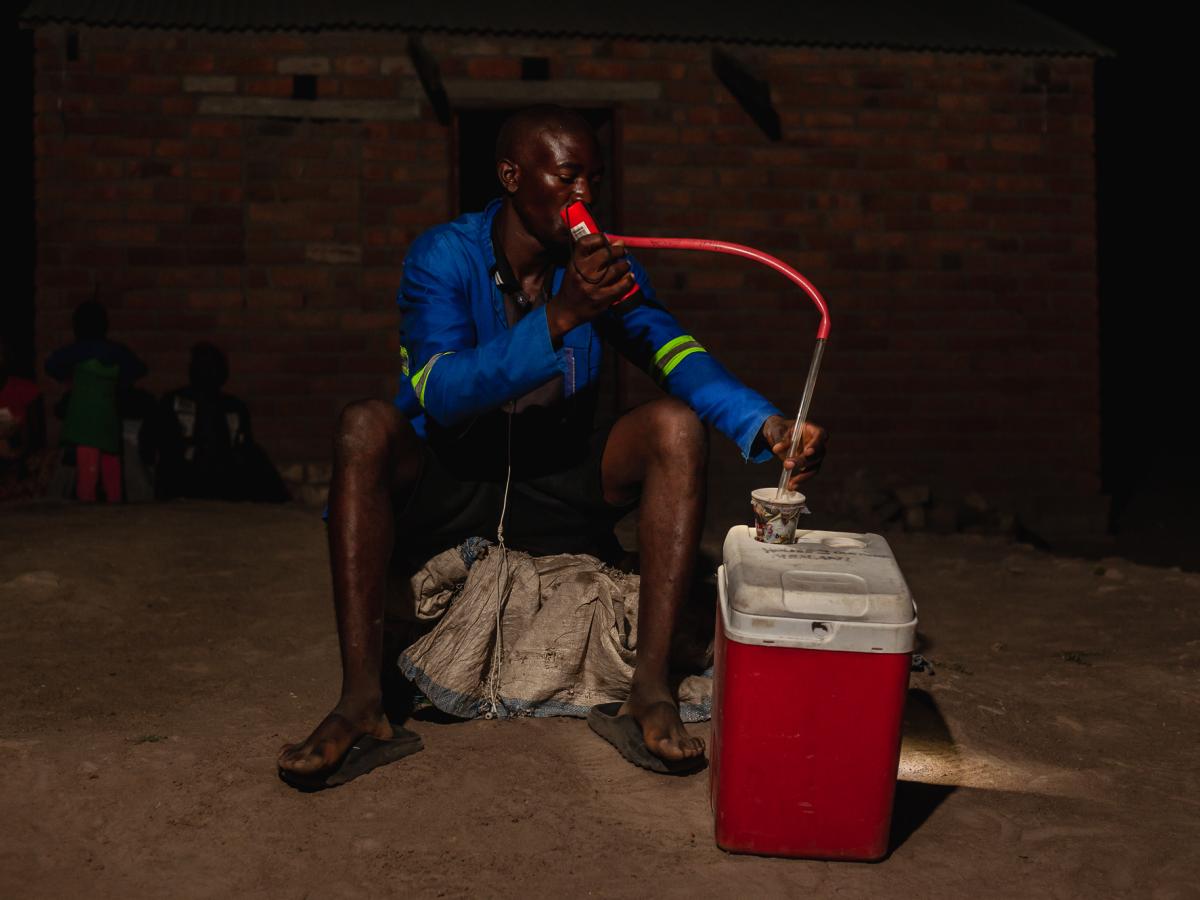
After catching the mosquito using a mouth aspirator, Micheal Banda carefully places the mosquito into a labeled paper cup. Each paper cup is labeled with site name, house number, collection location (indoor or outdoor) and collection hour./
Chipema Chinyama for USAID
The collected mosquitoes make it possible for the Zambia National Malaria Elimination Programme and PMI to analyze the mosquitoes for malaria parasites, assess the mosquito’s age, and study the mosquitos behavior to improve the interventions used to prevent malaria.
Meanwhile, Micheal Banda, from Chilowa, is taking on a different but equally crucial role as a human landing collector. Micheal sits outside (after taking malaria prevention medicine in case he is accidentally bitten by an infected mosquito while working), exposing his skin to mosquitoes and catching them with a mouth aspirator as they attempt to bite. The PMI Evolve project sends these mosquitoes to the PMI-supported lab at the National Malaria Elimination Centre for analysis. The mosquitos that Michael collects provide valuable information about malaria transmission rates and mosquito behavior.

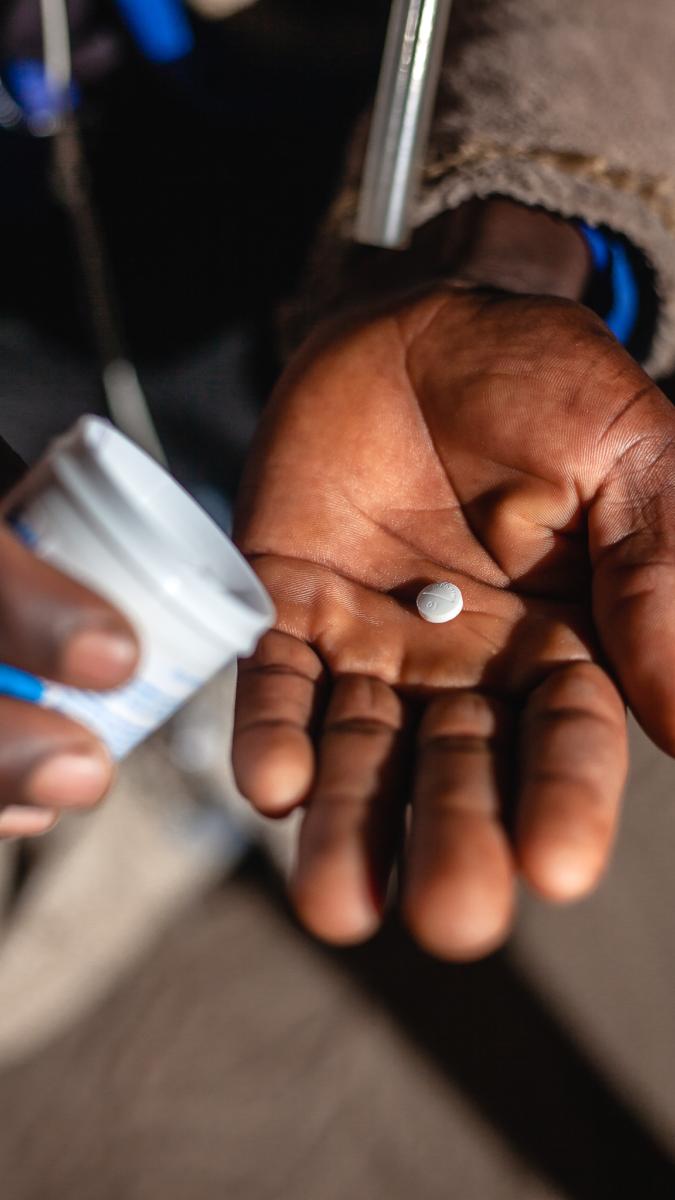
Micheal Banda, mosquito collector, taking medicine to prevent malaria infection in case he is accidentally bitten by infected mosquitoes while working. /
Chipema Chinyama for USAID

Mosquito collectors recording data for the household including wall surface type, roof type, number of nets, bed spaces, temperature and humidity. /
Chipema Chinyama for USAID
Eless, Sara, and Micheal, along with other community collectors, were given special training by the PMI Evolve project and provided tools like digital hygrometers to record temperature, humidity, and other data during their mosquito collection activities.
Their work not only helps to reduce the burden of malaria in Chilowa village but also contributes to a broader understanding of how best to combat this disease across Zambia. Their work is a testament to the power of community involvement in health initiatives, demonstrating that with the right knowledge, tools, and determination, even the most daunting challenges can be overcome.
As we commemorate World Mosquito Day, we recognize and celebrate the efforts of Eless Banda, Sara Banda, Micheal Banda, and all the health heroes who are making a real difference in their communities and in the fight against malaria.

